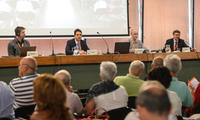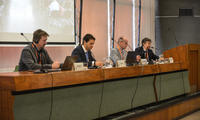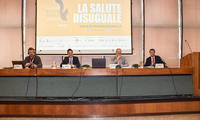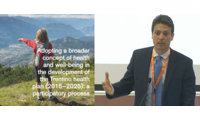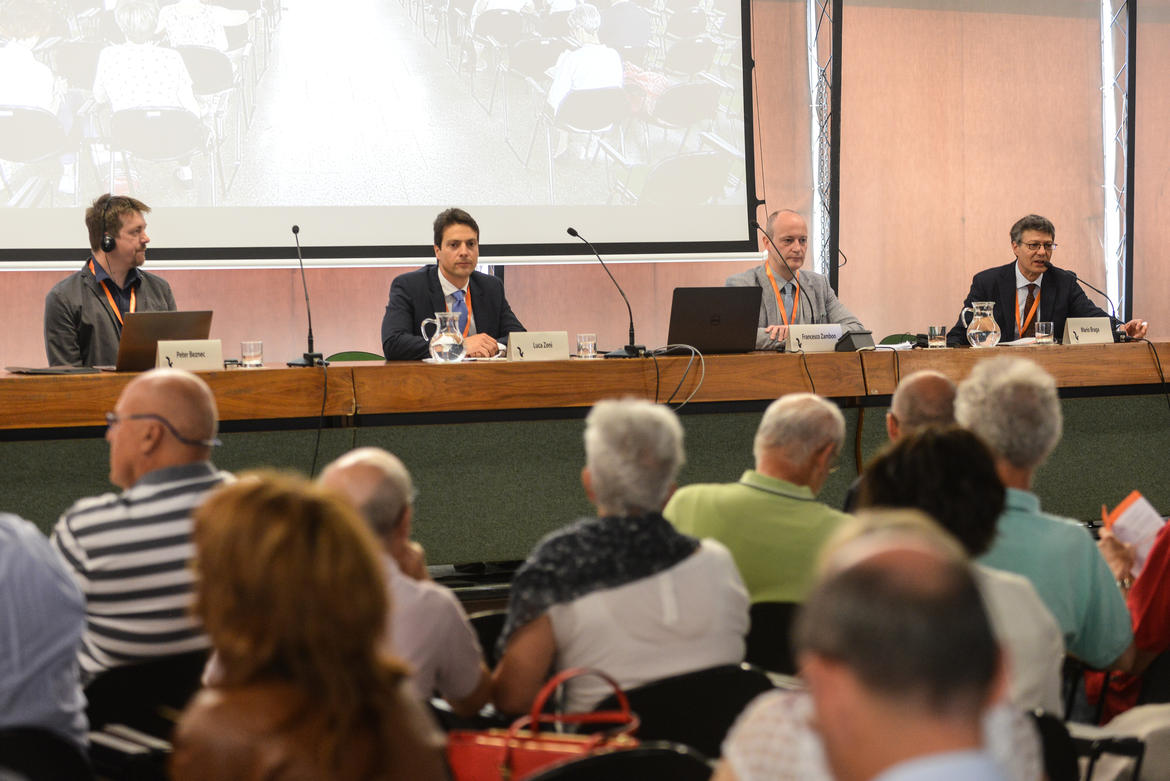
Francesco Zambon from RHN showed the path from the Ottawa Charter for Health Prevention in 1986 to their present work with the Sustainable Development Goals (SDGs). “Health is such a horizontal and intersectional issue that cannot be reduced to healthcare only," explains Zambon. "But it is related to everyday life activities. Yet, the so-called Social Determinants of Health are increasingly playing a leading role in health promotion."
Mario Braga from AGENAS described his concern at the increasing gap in life expectancy between Northern and Southern Italy. “The gap can be up to 4 years difference in life expectancy between Trentino and Calabria," says Braga, "and that means a great deal. Moreover, there are huge inequalities in healthcare access and service quality amongst Italian regions as well."
Luca Zeni discussed achievements in Trentino concerning the promotion of health and a healthy lifestyle. “Fortunately, in Trentino we are at the top of the national and world range for life expectancy," points out Zeni, "with the life expectancy in Trentino being 81.4 years for men and 85.9 years for women. Nevertheless, we aim to make Trentino both a quasi-laboratory to test the promotion of healthy lifestyles and, simultaneously, as a collector of best practices coming from other European regions”. Zeni’s idea is not to punish unhealthy behaviours, but on the contrary, he wishes to promote both individual or collective subsidies. One tool being used to reach the objective is a newly released app, a sort of “virtual coach” or “personal motivator” that sets up healthy goals for users. If goals are achieved, the app calls for subsidies. Zeni also introduced the Trentino Health Plan (2015-2025), which is recognised by insiders as one of the most successful plans at the European level.
Finally, Peter Beznac brought his experience in health promotion in Pomurje (one of least developed regions in Slovenia). “Focusing our attention on just two best practices, active lifestyle and healthy nutrition, in 15 years, we improved both our social or health indicators. But it is important to start early at school," stated Beznac.
Web: http://2017.festivaleconomia.eu
Twitter: @economicsfest
Facebook: https://www.facebook.com/festivaleconomiatrento







